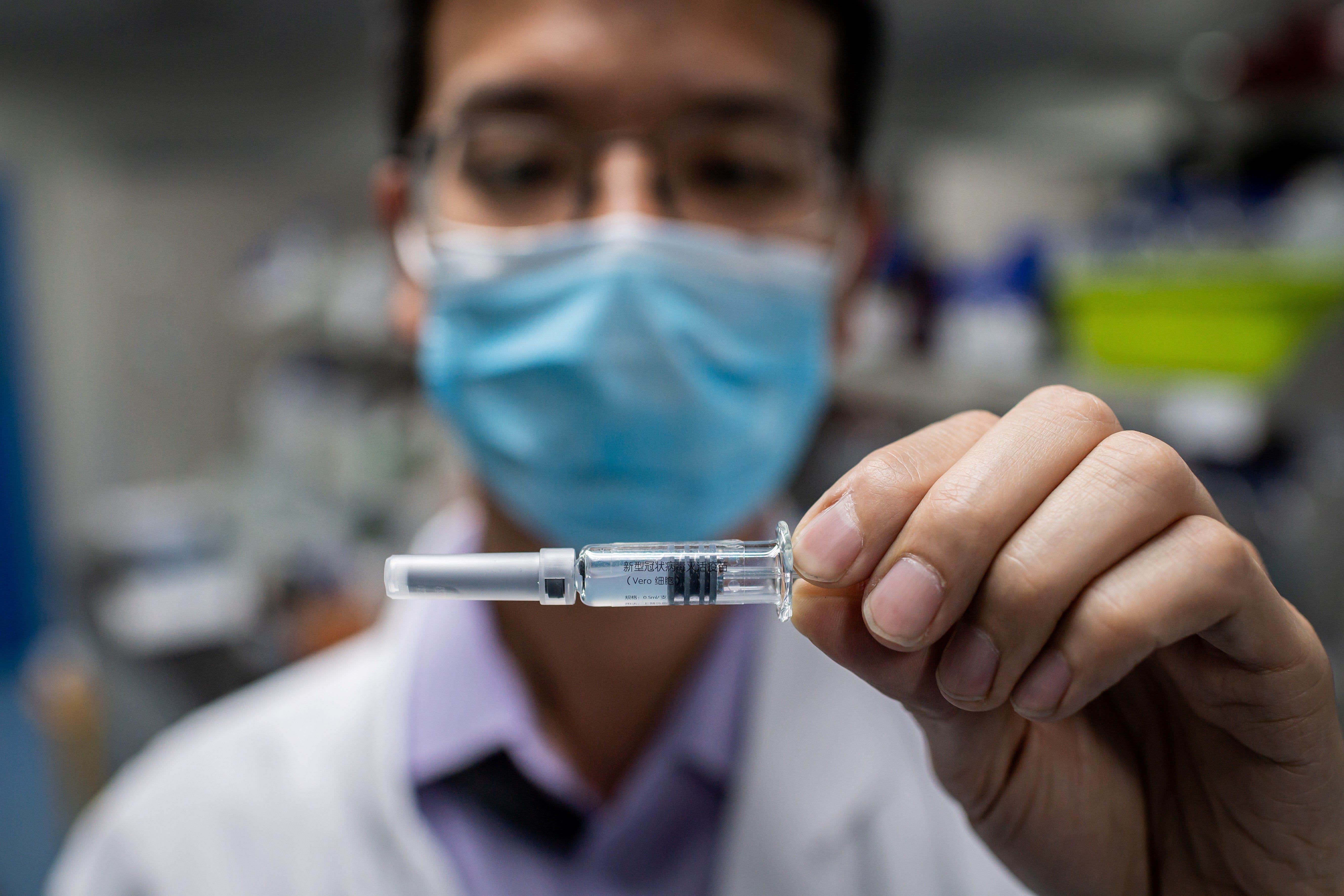CDC may not recommend coronavirus vaccine for children at first

An engineer shows an experimental vaccine for the COVID-19 coronavirus that was tested at the Quality Control Laboratory at the Sinovac Biotech facilities in Beijing.
Nicolas Asfouri | AFP | Getty Images
The Centers for Disease Control and Prevention said coronavirus vaccines may not be recommended for children if and when they are first available.
The statement, posted on the CDC’s website, said most of the drugmakers working on a potential coronavirus vaccine have tested only nonpregnant, healthy adults. The trials are expected to expand to children and pregnant women, but it’s unclear when researchers will have enough data to make a recommendation for those groups. It’s possible the vaccines could be authorized for limited use in the U.S. before trials testing children are completed, medical experts say.
“The groups recommended to receive the vaccines could change in the future,” the agency wrote.
Pregnant women and children are often the last to get tested in clinical trials as researchers assess safety risks, medical experts say. AstraZeneca, a frontrunner in the race for a coronavirus vaccines, said earlier this year that it would test its vaccine on children in a phase two trial. Moderna reportedly plans to start a pediatric trial this year.
Still, children in the U.S. were not expected to be among the first to get a vaccine.
The National Academies of Sciences, Engineering, and Medicine released a draft proposal last month for distributing a coronavirus vaccine in the U.S. if and when one is approved for public use. It devised the proposed guidelines at the request of the National Institutes of Health and the CDC.
The vaccine would be distributed in four phases, with health-care workers, the elderly and people with underlying health conditions getting vaccinated first, according to the group. Essential workers, teachers and people in homeless shelters as well as people in prisons would be next on the list, followed by children and young adults.
The CDC also said there may be a limited supply of vaccines before the end of 2020, but supply will continually increase in the weeks and months that follow.




